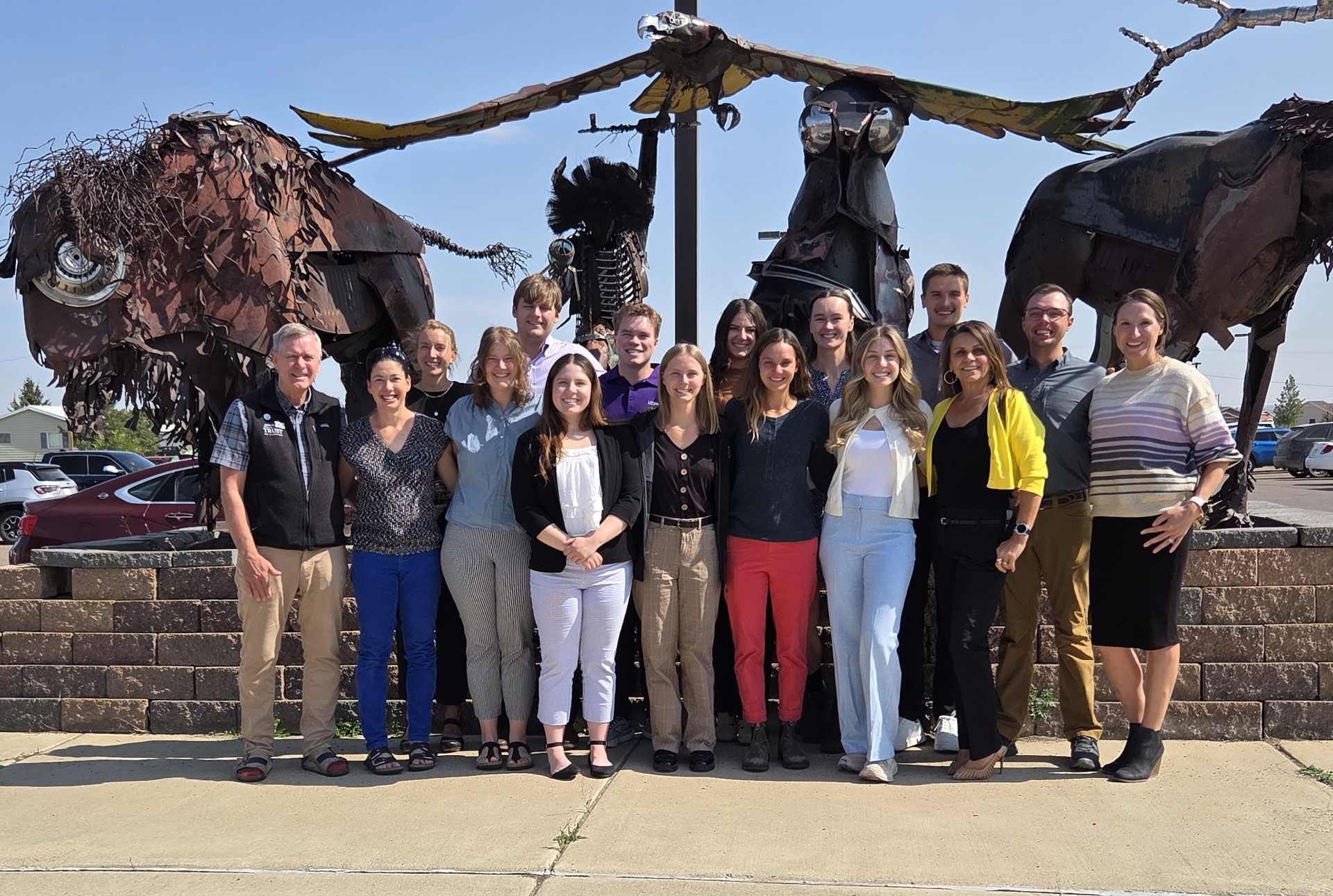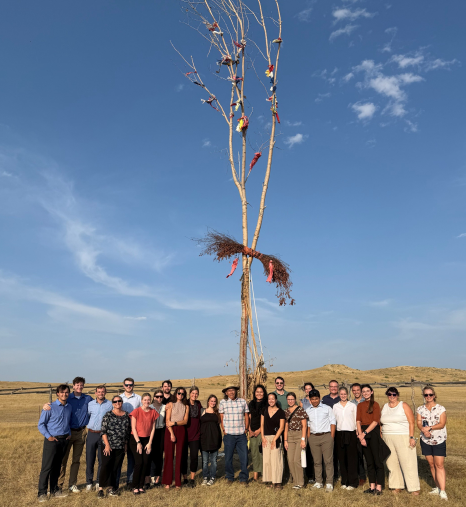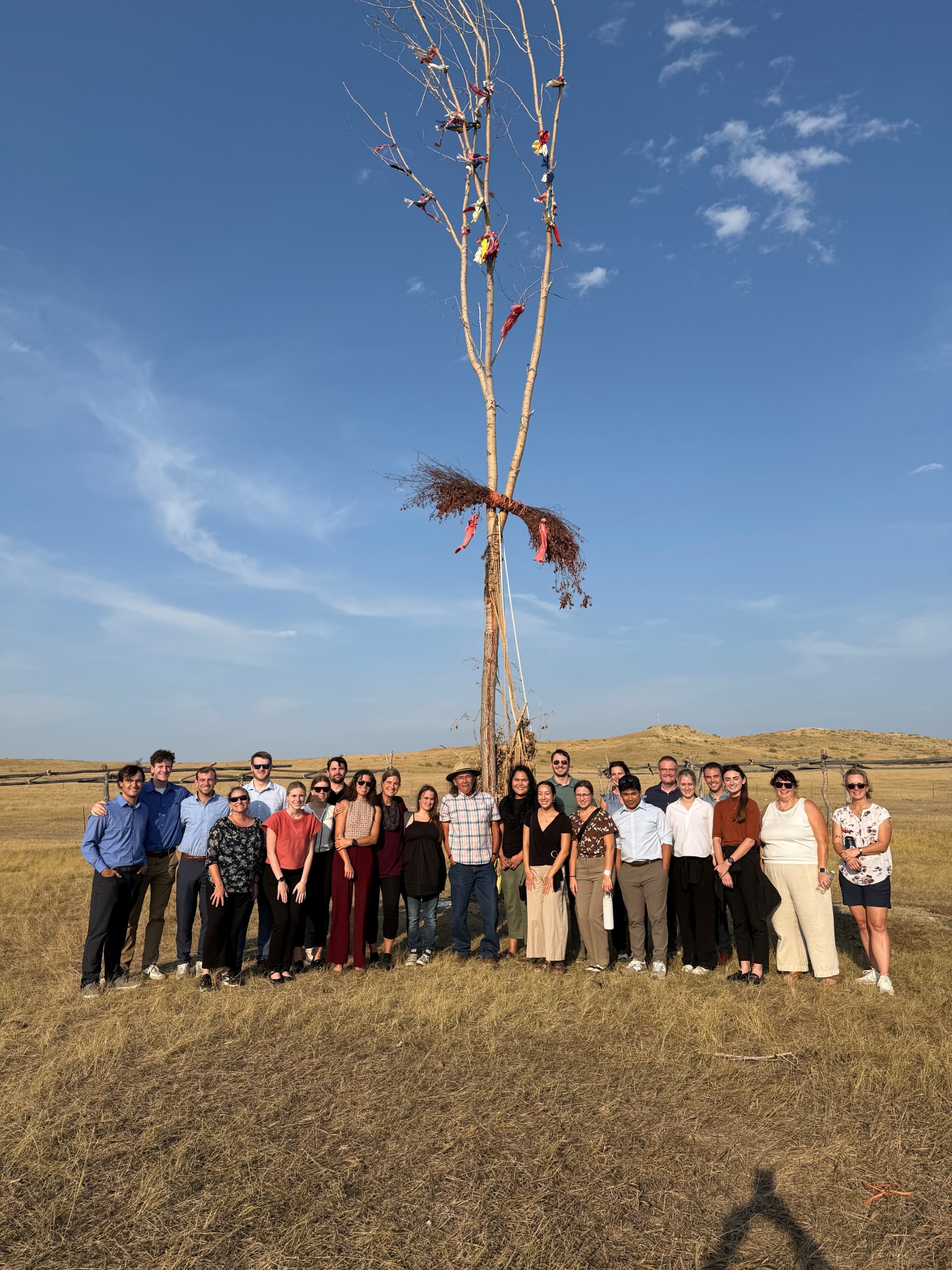
Earlier this month (September 8-10, 2025), first-year Montana WWAMI medical students participated in the American Indian Medical Experience (AIME), a three-day program designed to build cultural understanding and prepare future physicians to serve rural and underserved communities.
Students split into two groups: one visiting the Blackfeet Reservation in Browning, the other traveling to the Crow and Northern Cheyenne Reservations near Hardin and Lodge Grass. They met with Native leaders, health professionals, and Indian Health Service staff to learn about local health priorities, resources, and challenges.
For Grant Rickard of Billings, the Native and community leaders in Browning were inspiring.
“The most valuable part was witnessing the fortitude, determination and altruistic nature of the Indigenous women creating tangible change in Browning and within the Blackfeet Nation,” he said.
The experience reminded him that physicians are also advocates, educators and trusted voices of these communities.

“By recognizing this responsibility, I am empowered to continue to pursue medicine with a sense of accountability and service: to listen closely to my patients, respect and uplift their cultural traditions, and foster trust within my communities,” he added.
Riley Bird of Cut Bank and Amskapi Piikani band member (the Blackfeet Nation) said the experience in Browning strengthened her commitment to return home to practice medicine.
“This is a rural community with limited medical resources and deep-rooted generational, historical, and medical trauma that continues to perpetuate ongoing societal, health, and crime challenges,” she said. “However, this is also a community that has shown extraordinary resilience, continued perseverance, and is continuing to thrive and flourish regardless of the adversity we have faced.”
In Hardin, students learned about health and economic needs in Bighorn County, including efforts by local leaders to improve food access and support small business development. They also met with IHS leadership at the Crow Agency to better understand the realities of providing care in a large, rural region.
Overall, students from both groups learned that developing the skills to provide culturally competent care is essential for improving the health of all Montanans.
“AIME is not only a learning experience; it challenges your thinking and understanding of rural communities,” Bird said. “It reminded me that I can always be more understanding, compassionate and kind when treating patients in rural locations and reservations.”

